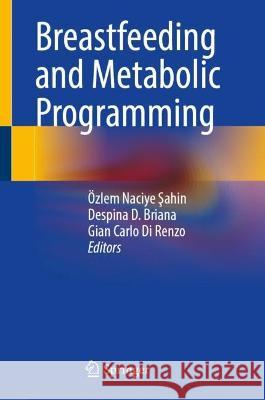Breastfeeding and Metabolic Programming » książka
topmenu
Breastfeeding and Metabolic Programming
ISBN-13: 9783031332777 / Angielski / Twarda / 2023
Breastfeeding and Metabolic Programming
ISBN-13: 9783031332777 / Angielski / Twarda / 2023
cena 535,99 zł
(netto: 510,47 VAT: 5%)
Najniższa cena z 30 dni: 535,99 zł
(netto: 510,47 VAT: 5%)
Najniższa cena z 30 dni: 535,99 zł
Termin realizacji zamówienia:
ok. 20 dni roboczych.
ok. 20 dni roboczych.
Darmowa dostawa!
This comprehensive and updated book focuses on breastfeeding and its long-term effects which affect health and development, providing a protective metabolic programming against chronic non-communicable diseases such as diabetes, obesity, metabolic syndrome and hypertension.All recent developments of programming effects of breastfeeding are covered in chapters that provide fundamental knowledge besides update and sophisticated information on the subject. Special focus on:
- Metabolic programming
- Neuro-developmental Programming
- Infections











